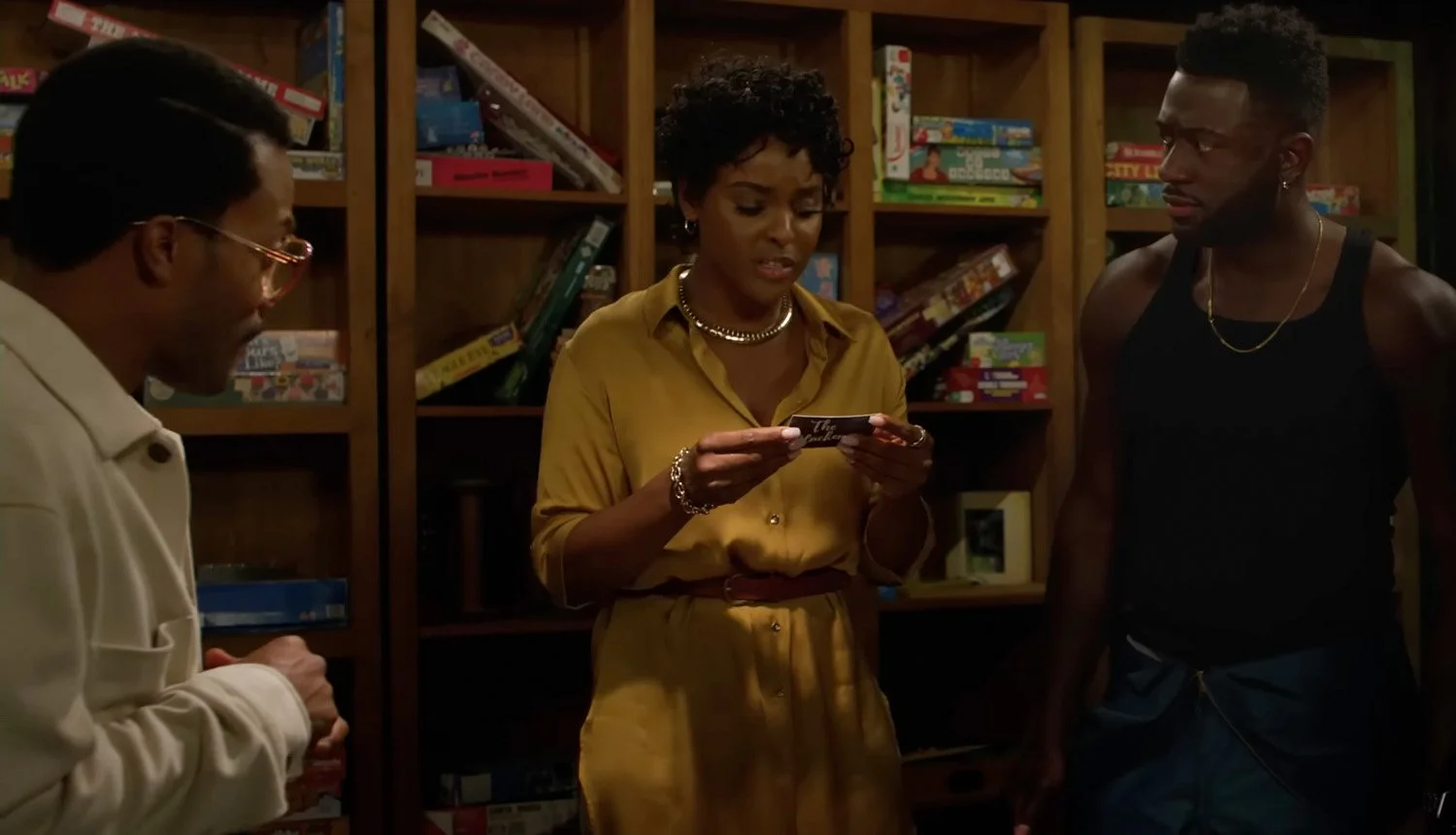The Blackening (2023) Offers Thoughtful Commentary on Horror Genre Amongst Side-Splitting Jokes
Originally published July 6, 2023
Title: The Blackening
First Non-Festival Release: June 16, 2023 (Theatrical Release)
Director: Tim Story
Writer: Tracy Oliver, Dewayne Perkins
Runtime: 97 Minutes
Starring: Antoninette Robertson, Dewayne Perkins, Sinqua Walls
Where to Watch: Check out where to find it here
Black horror has a long and rich history in the genre despite facing obstacles against it. The systemic racism of Hollywood prioritizing other stories and pushing back on creatives has led to the creation of unhelpful tropes that don’t allow Black people to shine in film as much or as often as they should. The Blackening seeks to commentate and push back against this narrative.
To celebrate the Juneteenth holiday and weekend, a group of friends journeys to a cabin in the woods for a class reunion. Between the typical drama that befalls friend circles and the desire to let loose for the weekend, the group stumbles upon an incredibly racist game in their AirBnb. Through persisting curiosity, they decide to play it only to find there are some deadly consequences for not winning.
Sharp-witted Black horror comedy The Blackening serves up a side-splitting, crowd-pleasing slasher for Juneteenth.
For far too long, Black representation in horror has been a mixture of problematic or absent at best to downright racist at worse, The Blackening lampoons this fact with ease. Featuring an all-Black main cast, The Blackening begins breaking down genre tropes from the beginning. From the historical contexts for the exclusion of Black people to the specific ways that Black characters and white characters act in films, The Blackening has no shortage of commentary on film representation.
Bringing up necessary questions about the nature of identity and its place within racial groups, The Blackeningexplores the nuances of its Black characters unlike many slashers before it. One of the central tenants of The Blackening is how it forces its characters to examine three major things: the history and inclusion [or lacktherof] of Blackness in horror, how Blackness operates in society, and how they individually interact with their Blackness. Many questions are posed to the group to test their knowledge and will to survive. How should you really behave if you find yourself in a horror movie? What special knowledge do you have that others don’t? And perhaps to this group of characters: what does Blackness mean to you?
This question is important to the story as it is for the genre itself. In most any other movie, each of these characters would be the only named Black person onscreen, maybe the only Black person or person of color at all. In those movies, which many of them exist at all levels of Hollywood, that would be the only representation of the experience of Blackness present in the film. Oftentimes, this experience would be watered down or would lean into stereotypes due to a combination of time constraints, indifference, and maliciousness. Of course, there are Black horror movies that counter this narrative, but few have had the chance to truly dig deeper into why this history matters in the way The Blackening does. With its cast, The Blackening shows just how complex and varied the Black experience is and how their contributions to genre cinema should amount more than being the first to die.
The Blackening also shows just how fun audiences can have by opening opportunities for more perspectives on screen. Simply put, this movie is funny as hell! Between clever dialogue, smart gags, adept subversions on genre conventions, and committed performances, The Blackening delivers quality entertainment for everyone. Obviously, there will be jokes that fly over some audience member’s heads, but that should not deter them from seeking out what is shaping up to be one of the year’s top horror comedies.
Tonally consistent, the only thing that holds The Blackening back is its lighter approach to horror. The setup for this film is horrific enough. The issue, however, comes to play with the stakes in the game. While the element of danger is very real, The Blackening tiptoes around making most of its cast get stuck in too dire of situations before managing a way out. This works well for the central basis of the film’s themes on Black inclusion in horror. While a higher body count isn’t necessary for a horror film, it does make a tough sell for a slasher. There’s still sufficient carnage in The Blackening, but there’s this ever-present feeling that the film is holding back a bit. This does nothing to diminish the film’s strengths, but it is a notable point for future viewers.
Horror comedies are notoriously tricky to land, but The Blackening sticks it effortlessly. An excellent example of gateway horror for folks who seek out milder forms of horror, The Blackening will balance out the scares with plenty of laughs to ease the tension. Its dynamic and engaging cast brings their characters to life in sincere ways that make it easy to connect and root for them through their night of terror. Beyond its framework, The Blackening serves as an important reminder that there is plenty of material out there for excellent films, if studio executives are willing to expose people to more than one view.
Overall Score? 7/10


